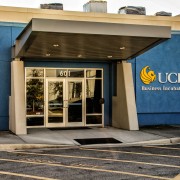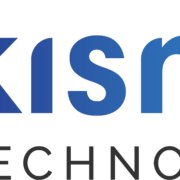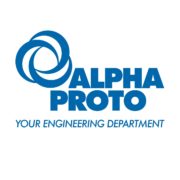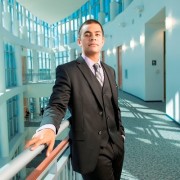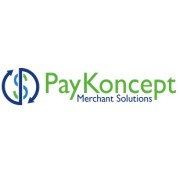Volusia County–UCF Business Incubator to Announce 2016 Strategy that will Turn the Incubator into a Volusia Tech Hub
Daytona Beach – Connie Bernal, site manager of the Volusia County–University of Central Florida Business Incubator in Daytona Beach, will reveal the organization’s 2016 strategic plan at 4 p.m. Jan. 15 at the Daytona Beach International Airport site, 601 Innovation Way.
With a goal of “Creating a Culture of Technology and Innovation,” Bernal said the 2016 strategy, which includes partnerships, weekly training sessions and launch of a Volusia Tech Hub website, evolved from a need in finding talented employees for the incubator’s growing technology and e-commerce companies.
“The digital economy is a trillion dollar a year industry that’s booming.” Bernal said, adding “and it’s one of the best opportunities for economic growth and job creation. The digital technologies contribution to the GDP growth in the US doubled to 21 percent in the last five years. If Volusia County doesn’t get into it, our economy will not grow with the US growth because new companies will continue to migrate to other cities to work.”
Bernal said many of the Volusia County-UCF Business Incubator’s 13 clients are e-commerce-type companies involved in digital business–web site developing, portal development, platforms, and apps. But while their business is expanding, they want scalable growth which is nearly impossible to achieve without local talent.
So, Berna l– a determined leader who has nurtured more than 35 fledgling and established clients at the Daytona Beach incubator the past four years – has formed partnerships with people who will help produce the needed local talent. The partners include Ryan Paiva, skilled web developer and founder of Golevel LLC an e-commerce business, and Arthur Register CEO of Rubicon Business Services, a software engineering firm. Both are clients of the Incubator.
The coding room will have 10 workstations for students. A four-week full stack web development course is valued at $250 per person.
Another part of the Volusia Tech Hub initiative is a Makerlab to create prototypes that most start ups need, Bernal said. Hiring an engineer to make a prototype could cost as much as $10,000, but with the creation of the Makerlab at the Volusia-UCF Business Incubator the cost is virtually eliminated.
Bernal acquired an additional 405 square feet of adjoining space at the airport to house the 3D printers, white board, and other necessary equipment for the Makerlab, and partnered with Stetson University Professor Dr. Bill Ball to set up the Incubator’s Makerlab and instruct students in designing and printing simple 3D models.
“It is a 12-hour course that requires no previous experience,” Ball said. “Students will design and build a 3D printed lamp that includes a microcontroller that has been programmed for a variety of lighting effects. Then they will be printed out on the Makerlab’s 3D printers.” Ball established the Makerlab at Stetson.
“On Jan. 22 we’ll begin ‘Volusia Tech Hub Programs’– classes in coding and rapid prototyping to assist web site and portal developers, webmasters and local inventors and/entrepreneurs,” Bernal said.
The sessions are open to anyone interested in learning coding and rapid prototyping and upon course completion students will be able to design / develop web sites or make a prototype.
Bernal said the Volusia-UCF Business Incubator plans to enroll 16 coding students a month who create new websites for 16 local companies to help them sell to online customers. The students benefit by learning coding and adding that skill to their resumes, while the businesses profit with a new website to help them be more competitive without the expense of a website designer.
Local businesses are also welcome to sponsor coding students at the Volusia Tech Hub at the Incubator, Bernal said.
“This is all about creating a culture of technology and innovation,” Bernal said. “It’s a culture of teaching students and locals to be innovative and competitive in their business practices. We’re not creating companies; we’re creating an atmosphere for entrepreneurs and students to create innovative companies that will bring outside money so that our local economy will grow” she explained.
“When you have a group of eager, innovative students learning from talented trainers and startup companies, and give them the tools they need, that’s synergy,” she said “These students could get an idea, and possibly start a company like Amazon or EBay.”
# # #
For more information about this release, please contact:
Connie Bernal, Site Manager, Volusia County – University of Central Florida Business Incubator Program, 386-872-3101, connie.bernal@ucf.edu
Beth Payan or Larry Vershel, Larry Vershel Communications, 407-644-4142, lvershelco@aol.com
About the UCF Business Incubation Program
The University of Central Florida Business Incubation Program is a community resource that provides early-stage companies with the tools, training and infrastructure to become financially stable, high growth / impact enterprises. Since 1999, this award-winning program has helped hundreds of local startup companies reach their potential faster by providing vital business development resources.
With seven facilities throughout the region, the UCF Business Incubation Program is an economic development partnership between the University of Central Florida, the Corridor, Orange, Osceola, Seminole and Volusia Counties, and the cities of Apopka, Kissimmee, Orlando and Winter Springs. Participating companies sustain more than 3,600 local jobs and have had a total impact of $1.51 Billion on regional sales and $2.48 Billion on regional economic output. During the last fiscal year, the program has returned $7.95 for every $1.00 invested in the program.

